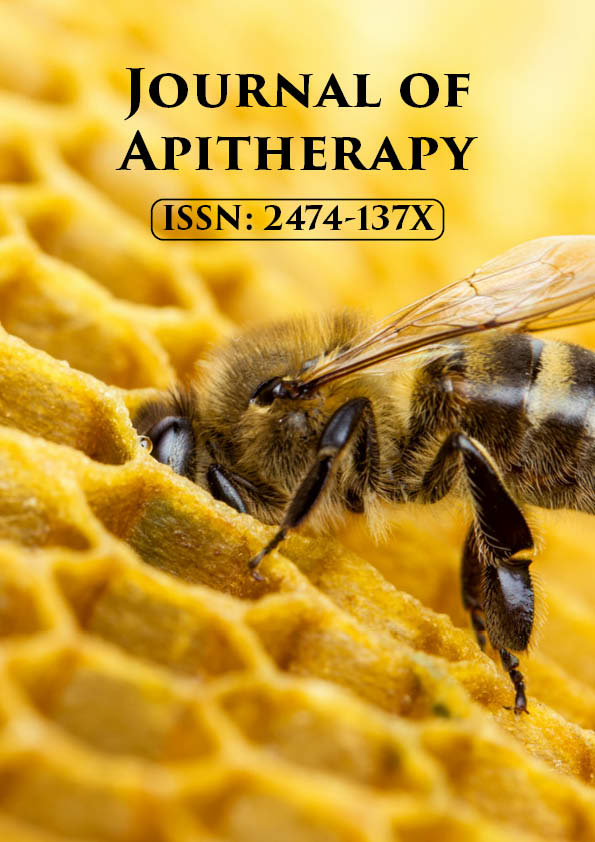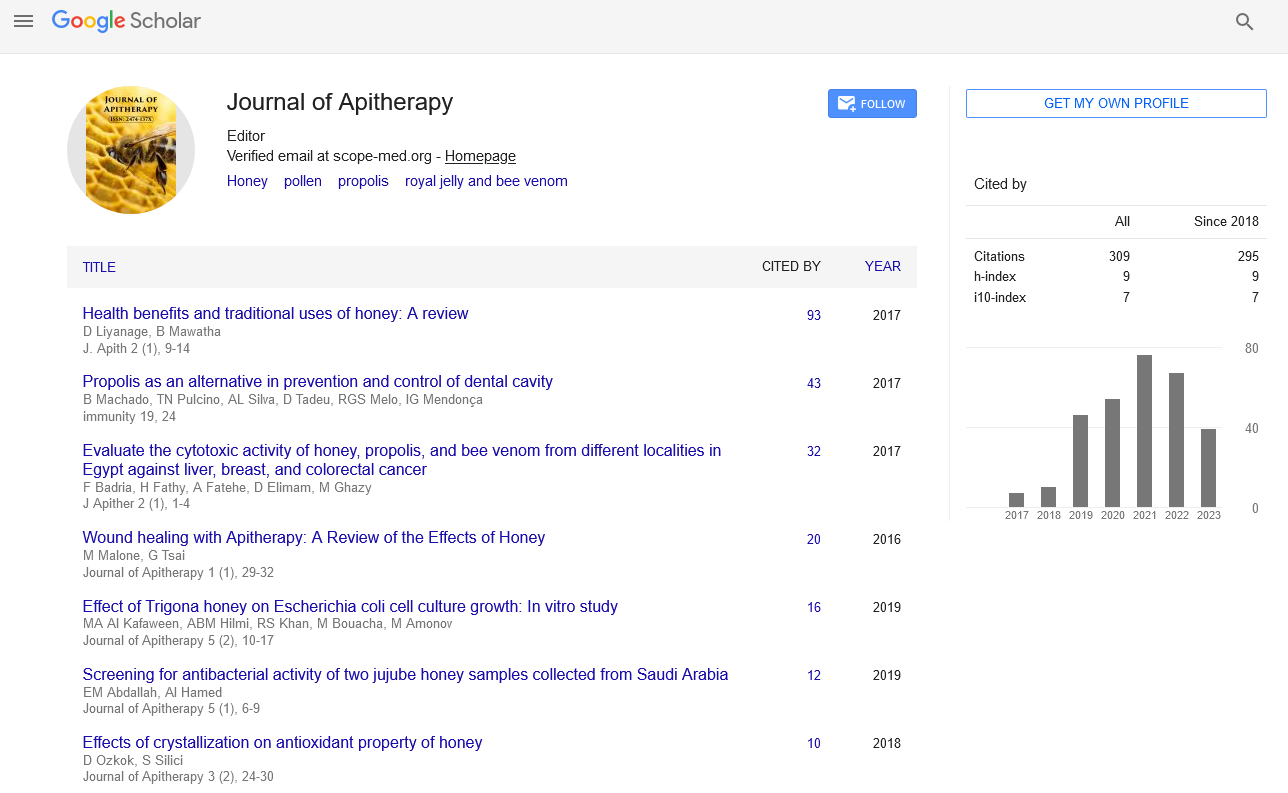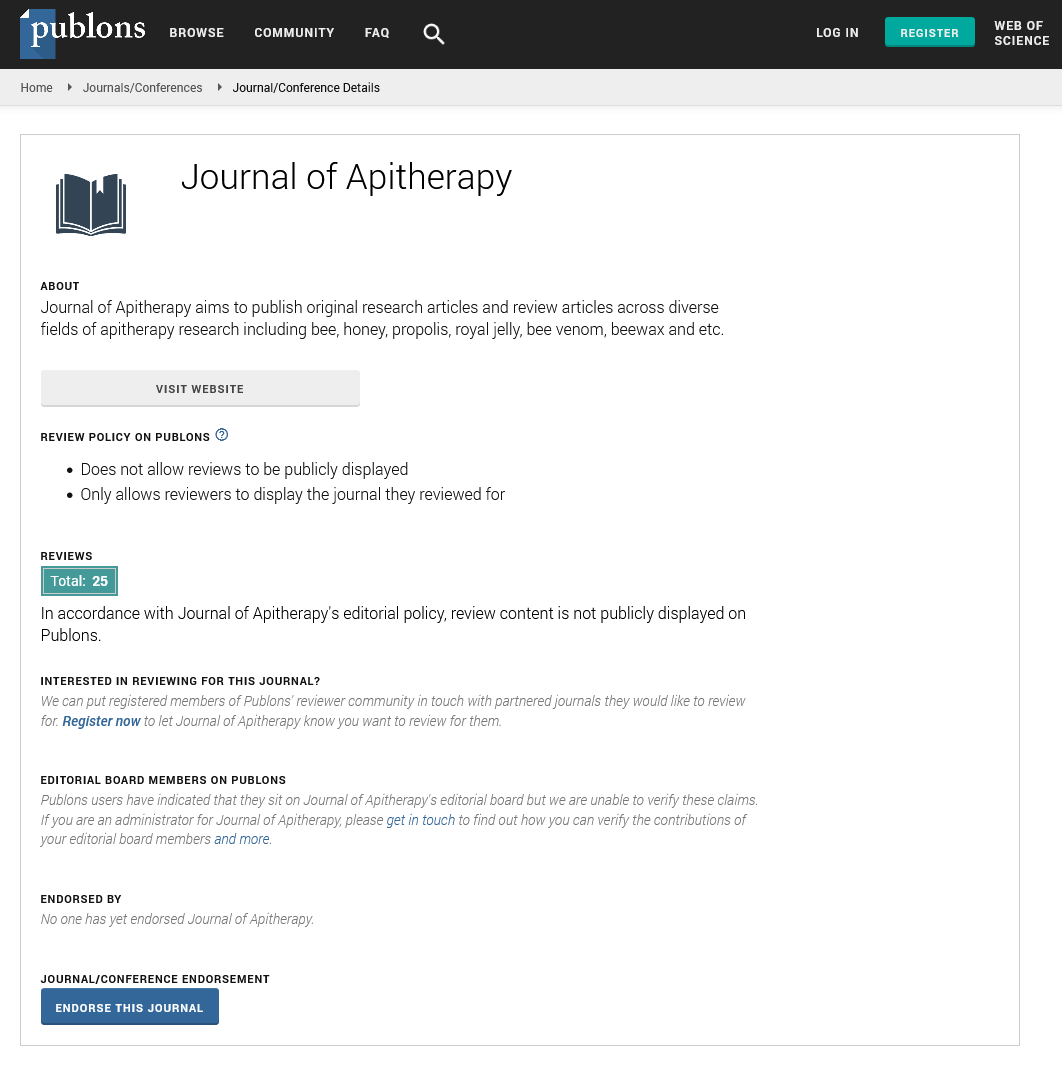Perspective - Journal of Apitherapy (2023)
Honey Varietal Therapeutics: A Sweet Symphony of Healing
Phillip Urbach*Phillip Urbach, Department of Natural Sciences, Para University, Belem, Brazil, Email: Phillip@gmail.com
Received: 09-Nov-2023, Manuscript No. JAPITHERAPY-23-123570; Editor assigned: 13-Nov-2023, Pre QC No. JAPITHERAPY-23-123570 (PQ); Reviewed: 22-Nov-2023, QC No. JAPITHERAPY-23-123570; Revised: 29-Nov-2023, Manuscript No. JAPITHERAPY-23-123570 (R); Published: 07-Dec-2023
Description
In the world of natural remedies, the spotlight is increasingly turning to the diverse world of honey varietals for therapeutic applications. Honey, traditionally known as nature's sweetener, is now gaining recognition for its intricate profiles and unique therapeutic properties. This essay delves into the fascinating realm of "Honey Varietal Therapeutics," exploring the nuanced healing potential that different honey varieties offer to individuals seeking a holistic approach to health.
The essence of honey varietals
While honey has been used for its medicinal properties for centuries, the concept of honey varietals focuses on the distinctive flavors and healing properties associated with the nectar of specific flowers. Bees, in their pollination journey, collect nectar from a variety of plants, and the resulting honey takes on the characteristics of the flora in the surrounding environment.
Honey varietals are distinguished by factors such as the geographical region, the types of flowers visited by bees, and the climate—all of which contribute to the unique composition of each honey. This diversity in honey varietals forms the foundation of Honey Varietal Therapeutics, recognizing that different honeys offer a spectrum of therapeutic benefits beyond mere sweetness.
The power of polyphenols: One key aspect that sets honey varietals apart is their rich content of polyphenols. Polyphenols are a group of naturally occurring compounds found in plants, and they are renowned for their antioxidant properties. Different honey varietals contain varying types and concentrations of polyphenols, giving each honey its distinct antioxidant profile.
In Honey Varietal Therapeutics, the emphasis on polyphenols extends beyond the typical nutritional discourse. These compounds play a crucial role in neutralizing free radicals in the body, contributing to cellular health and potentially reducing the risk of chronic diseases. The polyphenolic richness of honey varietals transforms them into more than just sweeteners; they become potent allies in promoting overall well-being.
Manuka honey: A pioneer in therapeutics: Among the myriad honey varietals, Manuka honey stands out as a pioneer in therapeutic applications. Originating from the nectar of the Manuka tree in New Zealand and parts of Australia, Manuka honey has gained global recognition for its unique antibacterial properties.
The therapeutic potential of Manuka honey is often attributed to its high levels of methylglyoxal (MGO), a compound with strong antimicrobial effects. Researchers have explored its application in wound healing, immune support, and even digestive health. The distinctive "UMF" (Unique Manuka Factor) rating system ensures that consumers can identify the potency and quality of Manuka honey for therapeutic use.
Exploring floral diversity: Honey varietals extend far beyond Manuka, encompassing a vast array of floral sources. For instance, lavender honey is celebrated for its calming properties, making it a potential aid in stress reduction and sleep improvement. Buckwheat honey, with its robust flavor, is recognized for its potential in soothing coughs and sore throats. In Honey Varietal Therapeutics, each floral source contributes a unique set of compounds, giving rise to a spectrum of potential health benefits. The synergy between these compounds and the human body is a delicate dance that varies with each honey varietal, providing a palette of therapeutic options for individuals seeking natural remedies.
Local honey and allergies: Beyond the global recognition of specific honey varietals, there is a growing interest in the potential therapeutic benefits of local honey. Advocates suggest that consuming honey produced in the local environment may help build tolerance to regional allergens. The theory is that trace amounts of pollen in local honey act as a natural form of immunotherapy, gradually desensitizing the body to allergens and reducing allergy symptoms.
Beyond the jar: Honey varied applications: Honey Varietal Therapeutics extends beyond the conventional use of honey as a food item. The therapeutic applications encompass various forms, including honey-infused skincare products, medicinal tonics, and even apitherapy, where honey is incorporated into holistic healing practices.
Honey Varietal Therapeutics represents a sweet symphony of healing, where the diversity of honey varietals converges with the ancient wisdom of natural remedies. From the robust antibacterial properties of Manuka honey to the calming effects of lavender honey, each varietal offers a unique therapeutic melody.







